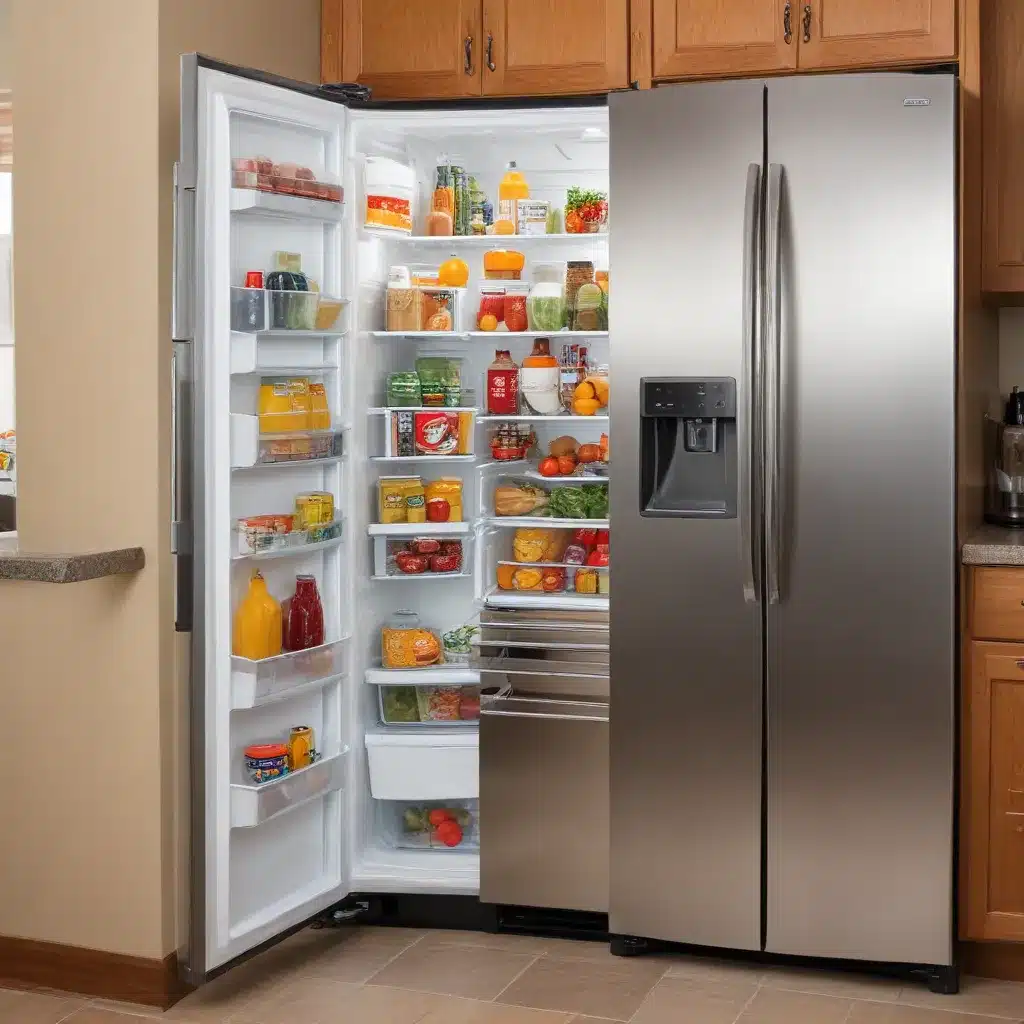
As a seasoned electrical expert, I’m thrilled to share insights on how to maximize energy savings with high-efficiency refrigerators. In today’s climate of rising utility costs and heightened environmental awareness, selecting the right refrigerator can have a significant impact on your energy bills and carbon footprint.
Exploring ENERGY STAR-Certified Refrigerators
The Federal Energy Management Program (FEMP) and the U.S. Environmental Protection Agency (EPA) have established clear guidelines for energy-efficient refrigerators through the ENERGY STAR certification program. ENERGY STAR-qualified models are required to meet stringent efficiency standards, ensuring they use significantly less energy than conventional models.
According to the data, a typical ultra-low temperature (ULT) freezer can consume as much energy per day as an average U.S. household. However, by selecting an ENERGY STAR-certified ULT freezer, you can expect to save a substantial amount on your energy costs. In fact, FEMP has calculated that an ENERGY STAR-certified ULT freezer can save money if priced no more than $1,830 above a less efficient model.
To illustrate the potential savings, let’s compare two types of product purchases:
| Specification | Less Efficient Model | ENERGY STAR-Certified Model |
|---|---|---|
| Annual Energy Use | 7,300 kWh | 5,800 kWh |
| Annual Energy Cost | $722 | $574 |
| Lifetime Energy Cost | $6,866 | $5,454 |
| Lifetime Cost Savings | – | $1,412 |
As this table demonstrates, the ENERGY STAR-certified model not only uses significantly less energy annually but also delivers substantial lifetime cost savings, making it the more economical choice in the long run.
Navigating Federal Purchasing Requirements
It’s important to note that federal laws and regulations mandate the purchase of ENERGY STAR-qualified products or FEMP-designated products across all product categories covered by these programs, with limited exceptions. This requirement applies to various procurement methods, including construction specifications, renovation contracts, lease agreements, and even purchases made with government credit cards.
To ensure compliance, FEMP recommends that federal agencies incorporate efficiency requirements into technical specifications, evaluation criteria, and the evaluation of solicitation responses. By prioritizing energy-efficient products, agencies can not only save money on utility bills but also contribute to the broader goal of reducing the federal government’s environmental impact.
Exploring Utility Incentives and Best Practices
While federal mandates help drive the adoption of energy-efficient refrigerators, many local utilities also offer rebates or other incentives for the purchase of ENERGY STAR-qualified products. Checking the ENERGY STAR Rebate Finder can help you identify any available incentives in your area, further enhancing the cost-effectiveness of your refrigerator investment.
Moreover, there are several best practices that can help optimize the energy efficiency of your refrigerators and freezers, even beyond selecting ENERGY STAR-certified models. For example, setting the temperature in a ULT freezer from -80°C to -70°C can reduce energy consumption by up to 40% without compromising operations. Implementing other management practices, such as regular defrosting, cleaning, and removing unnecessary items, can yield additional energy savings of up to 30%.
Ensuring Laboratory Resilience and Performance
When it comes to laboratory-grade refrigerators and freezers, the importance of energy efficiency extends beyond cost savings. ENERGY STAR-qualified models are designed with better insulation and cooling capabilities, which can significantly enhance the reliability and resilience of your laboratory assets and research.
During power outages, ENERGY STAR-certified models are better equipped to maintain stable temperatures, protecting the integrity of your valuable samples and experiments. Additionally, these models often feature reduced noise and a smaller footprint, creating a more comfortable and efficient working environment for your research team.
Exploring Smart Home Technology for Energy Savings
Beyond traditional refrigerators, the world of smart home technology offers a range of innovative solutions to further optimize energy efficiency in your household. Smart thermostats, for instance, can automatically adjust your home’s temperature based on your preferences and occupancy patterns, helping you save on heating and cooling costs.
Moreover, smart plugs and power strips can enable remote monitoring and control of your appliances, allowing you to turn off devices when not in use and track their energy consumption. These smart home devices can work in tandem with your high-efficiency refrigerator to create a comprehensive, energy-saving ecosystem within your home.
Maintaining Electrical Safety in DIY Projects
While exploring energy-efficient solutions, it’s crucial to prioritize electrical safety, especially when tackling DIY projects. Always consult with a licensed electrician before attempting any modifications or repairs to your home’s electrical system. Improper handling of electrical components can not only compromise the efficiency of your appliances but also pose serious safety risks.
When working with electrical devices, be sure to disconnect the power source, use the appropriate tools and personal protective equipment, and follow manufacturer instructions carefully. Additionally, familiarize yourself with the local building codes and safety regulations to ensure your DIY endeavors comply with industry standards.
Conclusion
In the quest for energy savings and environmental sustainability, the selection of high-efficiency refrigerators plays a pivotal role. By exploring ENERGY STAR-certified models, leveraging utility incentives, and implementing best practices, you can significantly reduce your energy consumption and utility costs while contributing to a greener future.
Moreover, the integration of smart home technology can further enhance your energy-saving efforts, creating a holistic, intelligent ecosystem that optimizes your household’s efficiency. Remember to prioritize electrical safety when undertaking DIY projects, and always seek the guidance of experienced professionals to ensure the integrity and longevity of your electrical systems.
As an electrical expert, I’m passionate about empowering individuals and organizations to make informed decisions that prioritize energy efficiency and environmental responsibility. By embracing these strategies, you can not only enjoy the financial benefits of reduced energy bills but also play a crucial role in shaping a more sustainable future for generations to come.

